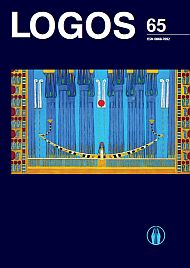Penktasis Dievo Buvimo Įrodymas Ir Jo Kritika
The Fifth Proof God’s existence and Its Critique
Author(s): Gintautas VyšniauskasSubject(s): Christian Theology and Religion, Metaphysics, Philosophy of Middle Ages, Philosophy of Religion
Published by: Visuomeninė organizacija »LOGOS«
Keywords: argument from design; analogy; proportionality; Aquinas; Hume; Dawkins;
Summary/Abstract: This article concentrates on the fifth way of proving God’s existence as it is represented by famous contemporary British atheist Richard Dawkins in his bestseller The God Delusion, and by David Hume in his Dialogues Concerning Natural Religion and by William Paley in his Natural Theology. My purpose is to compare the formulations of the fifth way found in those books with the ones found in Summa Theologiae and Summa contra gentiles of Thomas Aquinas. The comparison entails the conclusion that Dawkins misinterprets Aquinas’ proof by calling it the argument from design; for, strictly speaking, Aquinas’ proof concerns the existence of the Governor alone. The source of the misinterpretation is the faulty tradition of identifying Aquinas’ fifth proof with argument from design in modern philosophy. To call Aquinas’ fifth way the argument form design makes a medieval Christian theist to think as modern deist.
Journal: LOGOS - A Journal of Religion, Philosophy, Comparative Cultural Studies and Art
- Issue Year: 2010
- Issue No: 64
- Page Range: 87-95
- Page Count: 9
- Language: Lithuanian

